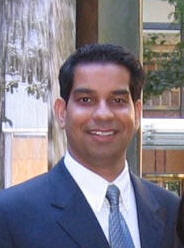One of the least talked about subjects in investing is an investor's circle of competence. I believe every investor should have a thorough understanding of his/her area of competence if there is any hope of besting the market.
I can speak from personal experience: when I started investing in 2000, I was bitten by the telecon industry. Looking back, I realize I had no business investing in companies like JDSU, Nortel Network and other dotcom darlings of the day. I had no idea of what these companies did, how did they make money and what their future prospects looked like. I was lucky that I did not invest (read "bet") a lot of money. Nevertheless, it was a lesson worth learning in spite of the hefty tuition bill :)
In one sense, "circle of competence" forces you to "buy what you know" - a concept put forth by investing legend, Peter Lynch. Although it is commonly misunderstood as buying what you are "familiar" with, it goes beyond just familiarity. What Lynch meant was that if you work in the health care industry and see a particular drug or device being prescribed more than the others, you have an advantage over others and could use this to investigate the company behind that product. And after your analysis, if you find an opportunity, go ahead and buy it. This is different from going to the local mall and seeing a line at the GAP store and buying the GAP stock based on this visit. The line could be due to several reasons - a slow cashier, cash register down or something else that has nothing to do with the latest design of khakis at GAP.
With that said, one can and should increase his or her circle of competence. It is amazing to see that Warren Buffett and Charlie Munger are still learning and increasing their circle after decades of experience. Not to mention, both of them are over 70 years old!
Berkshire Hathaway's recent purchases in the railroad industry gives us an insight into the minds of these uber-investors. Here is an excerpt from Charlie Munger's talk at the 2007 Wesco shareholder's meeting...
Railroads – now that’s an example of changing our minds. Warren and I have hated railroads our entire life. They’re capital-intensive, heavily unionized, with some make-work rules, heavily regulated, and long competed with a comparative disadvantage vs. the trucking industry, which has a very efficient method of propulsion (diesel engines) and uses free public roads. Railroads have long been a terrible business and have been lousy for investors.
We did finally change our minds and invested. We threw out our paradigms, but did it too late. We should have done it two years ago, but we were too stupid to do it at the most ideal time.There’s a German saying: Man is too soon old and too late smart. We were too late smart. We finally realized that railroads now have a huge competitive advantage, with double stacked railcars, guided by computers, moving more and more production from China, etc. They have a big advantage over truckers in huge classes of business.Bill Gates figured this out years before us – he invested in a Canadian railroad and made eight hundred percent. Maybe Gates should manage Berkshire’s money. [Laughter] This is a good example of how hard it is to change one’s mind and change entrenched thinking, but at last we did change.
The world changed and, way too slowly, we recognized this.
